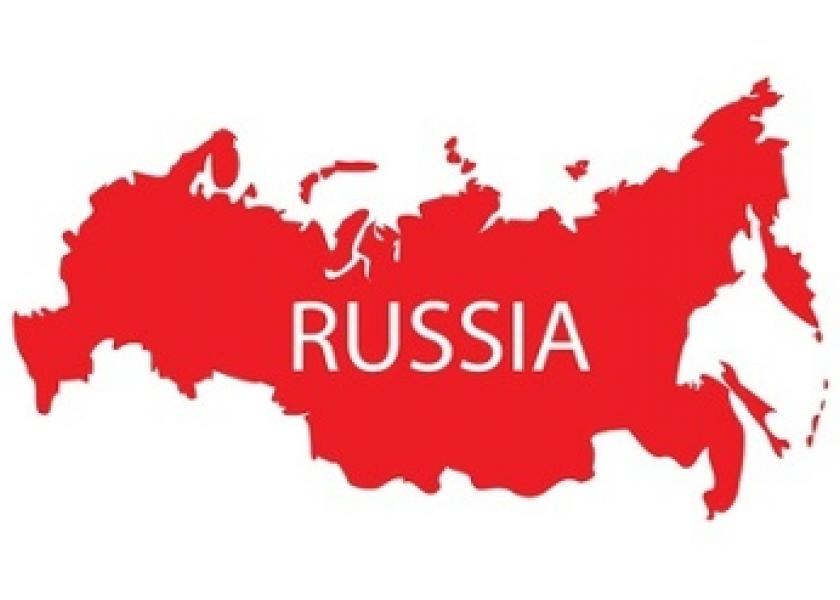Kremlin Drops Criminal Charges Against Prigozhin and Sends Him to Belarus

Mercenary fighters will escape repercussions; deal details awaited; what’s next?
U.S. and European allies are closely monitoring the clash and truce between Russia's army and the Wagner private mercenary group, led by Yevgeny Prigozhin, a former ally of Russian President Vladimir Putin. The Wagner group seized the southern Russian city of Rostov and began advancing towards Moscow, prompting Putin to react against them. A truce was eventually brokered by Belarus President Alexander Lukashenko. Prigozhin said his forces would stop their march on Moscow and return to their camps to avoid bloodshed.
Tensions are rising in Russia following Saturday's violence when a paramilitary group led by Prigozhin seized the city of Rostov. Russia has begun addressing the aftermath of the event which has primarily weakened various factions in the power struggle. The recent event demonstrates internal discord within the Russian establishment and military due to the ongoing war in Ukraine. As noted, a truce was brokered between Putin and the rebels by the Belarusian president, and although Prigozhin was supposed to relocate to Belarus, his whereabouts remain unknown.
U.S. intelligence officials had known since mid-June that Prigozhin was plotting an armed uprising and urgently informed the White House and other gov’t agencies, so they were not caught off-guard, several U.S. officials said. Over the last two weeks there was “high concern” about what might transpire — whether Russian President Vladimir Putin would remain in power and what any instability might mean for control of Russia’s nuclear arsenal, the official said. “There were lots of questions along those lines,” this person said.
A key trigger for Prigozhin, officials said, was a June 10 Russian Defense Ministry order that all volunteer detachments would have to sign contracts with the government. Though the order did not mention Wagner by name, the implication was clear: a takeover of Prigozhin’s mercenary troops, who have proved essential to Russia’s military campaign in Ukraine and have helped secure some of its most notable tactical victories.
The U.S. State Department sent a message to its overseas missions to convey to host governments: “The United States has no intention of involving itself in this matter.” U.S. officials said they saw no changes in the disposition of Russian nuclear forces, nor any reason to adjust its own forces, and noted the U.S. maintains lines of communications with Russia to discuss nuclear issues.
U.S. secretary of Defense Lloyd Austin III spoke on Saturday with his counterparts from Canada, France, Germany, Poland and the United Kingdom to discuss the situation in Russia, the Pentagon said in a statement. “The United States will stay in close coordination with allies and partners as the situation continues to develop,” Brig. Gen. Patrick Ryder, the Pentagon spokesman, said in the statement.
When U.S. Secretary of State Antony Blinken was asked if the U.S. was prepared for the potential fall of the Putin government, he said the U.S. prepares for every contingency but said the conflict was “an internal matter for the Russians to figure out.” He told ABC’s This Week the rebellion — which poses one of the gravest threats to Putin since he first took power 23 years ago — could distract from Russia’s invasion of Ukraine, but instability in Russia is a cause for concern. Blinken said it was unclear where the Prigozhin-led Wagner forces go from here and whether they will return to fight as Wagner or integrate into regular Russian forces. The U.S. also still doesn’t know the final terms of the agreement between Prigozhin and Putin, though Blinken speculated more information would trickle out in the days and weeks ahead about the specifics of the deal.
Western officials are making clear they do not intend to take sides in the matter and are avoiding military coordination on events in Russia. They are concerned about the political instability's potential effects on the region, particularly if Putin were to lose power. There are now questions about the possible outcomes for Ukraine and Europe based on the outcome of this situation.
In Denmark, U.S., Ukrainian, and European officials were set to meet with representatives from neutral powers to discuss building support for Ukraine's terms for peace. The U.S. has delayed imposing fresh sanctions on the Wagner group amid the ongoing tensions.
The West is now faced with a set of tough questions. Would Putin, who backed off his threat to defeat Prigozhin’s insurrection, emerge seriously weakened from the crisis? And if so, would a weaker Putin be more likely to escalate the conflict in Ukraine to regain confidence or seek some way out of the conflict?
“This is the moment, the crucial moment for his political future,” said Rainer Saks, former head of Estonia’s Foreign Intelligence Service. “His authority is going down, that’s absolutely for sure. His power is very much based on his personality, this isn’t a case where you can stay hidden, it’s impossible…And he is losing his respect.”
Former President Donald Trump wrote on his Truth Social account: “A big mess in Russia, but be careful what you wish for. Next in may be far worse!” Trump added that the chaos in Russia could present China with an “unthinkable opportunity… This is China’s heretofore unthinkable opportunity, much bigger than Taiwan,” Trump wrote.
The outcome of the current situation in Russia may largely depend on the strength of the truce brokered by Belarus's President Lukashenko, and whether Prigozhin's forces can safely retreat from their advances towards Moscow. Lukashenko said he spent most of Saturday negotiating with Prigozhin and Putin, adding that all sides had agreed “that unleashing a bloodbath on the territory of Russia was unacceptable.” The deal offered to Prigozhin is “absolutely advantageous and acceptable,” and will involve security guarantees for Wagner, he added.
Regardless of Prigozhin's intentions, his recent actions appear to indirectly challenge Putin's authority, raising questions about the future stability of Russia and the region.
Putin earlier vowed to punish those responsible for the "armed uprising" after Prigozhin launched an insurrection and took control of military facilities in two Russian cities. Prigozhin accused Russia's military leadership of attacking a Wagner camp on Friday. Putin called his actions “treasonous” and ordered his forces to put down what he called an armed rebellion. Putin warned of the danger of a civil war resembling the upheaval of 1917, when the Bolsheviks rose to power. But Kremlin spokesman, Dmitri S. Peskov, announced that the criminal case against the Wagner leader would be dropped. Prigozhin will go to Belarus, Peskov said, and the fighters who rebelled with him would not be prosecuted by law given their "service at the front." Wagner fighters who did not participate in the mutiny can sign contracts with the Russian Ministry of Defense, he said.
However, some veteran Russia watchers say Putin will eventually “deal” with Prigozhin. Putin is not a man known to let bygones be bygones. In a 2018 interview, he was asked if there was any sin impossible to forgive. “Betrayal,” he replied. His critics and enemies often turn up dead — both inside Russia and abroad. Prigozhin has “cornered himself” by going either too far or not far enough in his attempted rebellion against the Kremlin, according to Michael Horowitz, an expert on Russia at Le Beck International, a Middle East security consultancy. Prigozhin would be “naive to think this is over” and remains unsafe in Belarus, despite his trust in Lukashenko, Horowitz told NBC News in an email. “If he lays low, he may still end up drinking poisoned tea, and if he is too loud, he will become even more of a liability for Moscow,” he added. Horowitz said his prediction was that Prigozhin would likely return to Ukraine where he could operate with “relative freedom” among men he knows are loyal to him.
Kurt Volker, the former U.S. ambassador to NATO, and U.S. special representative for Ukraine negotiations from 2017 to 2019, said: “Putin has left himself no way out. As long as he is in power, he will fight. And that will kill the Russian state. So this means his removal from power becomes inescapable if Russia is to survive as a state… We still don’t know what mechanisms may arise, but the writing is on the wall,” Volker told USA Today (link). “Going after Prigozhin is a finger in the dike. The bigger picture is the end of Putinism.”
To make sense of the crisis and what shock waves it might send through Russian elites, Foreign Policy spoke to Tatiana Stanovaya, an expert on Russian politics with the Carnegie Endowment for International Peace think tank and the founder of R.Politik, an independent political analysis firm. The interview (link) was conducted before Prigozhin announced his forces were backing down.
Prigozhin, 62, who has repeatedly professed his loyalty to the Russian president, said his target was the Defense Ministry. “The evil borne by the country’s military leadership must be stopped,” he said in one of a series of voice recordings posted to the Telegram social network Friday night.
Prigozhin, a longtime Russian oligarch, has been linked to Putin for over 30 years. He has been involved in multiple war zones and even admitted to having a role in Russia's interference in the 2016 U.S. elections. In 2018, he was one of 13 Russians indicted by a federal grand jury on charges that they had interfered in the 2016 American election.
After serving a 13-year sentence for robbery and assault charges, Prigozhin opened a restaurant business in St. Petersburg in 1994. He met Putin in the early 1990s and went on to develop a successful catering business, earning him the nickname "Putin's chef." Prigozhin has been suspected of having influence on foreign policy within the Kremlin but denies these allegations.
Besides his role in the 2016 U.S. elections, Prigozhin confirmed last year that he founded the mercenary firm Wagner Group in 2014. The group has been involved in Russia's invasion of Ukraine since February and is linked to Russian military efforts in various countries. In Syria, Wagner troops played an important role in securing territory for the country’s leader, President Bashar al-Assad, another Putin ally. Prigozhin’s forces also played a role in Moscow’s seizure of the Crimean Peninsula from Ukraine in 2014.
However, Prigozhin has increasingly criticized the Russian military and government over its decisions. Tensions between Prigozhin and Russian officials have worsened over the last year, with Prigozhin accusing the military of theft and slander, condemning leadership decisions, and threatening to march his troops towards Moscow.
Prigozhin hasn’t specifically criticized the Russian leader, instead blaming Defense Minister Sergei Shoigu and armed forces chief Gen. Valery Gerasimov for leading Russia into a disastrous war in Ukraine and depriving his men of vital munitions. Prigozhin has suggested that his goal isn’t a coup, but a march for justice that removes Shoigu and Gerasimov.
As for China’s relations with Russia, and in particular Putin, the armed rebellion in Russia has made Beijing's biggest fear surrounding the invasion of Ukraine a reality —the destabilization of its closest partner against the U.S.-led West. This crisis poses the most serious challenge to Putin's 23-year rule and creates uncertainty for Chinese leader Xi Jinping, who has portrayed China's relationship with Russia as a global counter to U.S. influence. As Russia faces internal turmoil and Putin appears weakened, this could compromise Russia's defense against a possible Western-backed offensive by Ukraine.
Chinese Foreign Minister Qin Gang met Sunday with Russian Deputy Foreign Minister Andrey Rudenko in Beijing. They discussed international and regional issues of common interest. Chinese Vice Foreign Minister Ma Zhaoxu also reiterated a commitment to defending the common interests shared between China and Russia amidst the "complex and grim" global environment. Additionally, Chinese state media has been covering the upheaval in Russia, with some speculating about the potential for regime change. Ultimately, the Chinese government expressed support for the Russian leadership's efforts to stabilize the situation within the country, per the Russian Foreign Ministry.
China's coverage of the insurrection remained limited, with state-run news agencies mostly providing information on Putin's response. However, the situation in Russia trended on Chinese social media platforms, with users expressing concerns over the political stability of Russia and the potential impact on China.
A top Russian diplomat flew to Beijing for talks with the Chinese government on Sunday, a day after the rebellion by a Russian mercenary commander fizzled out. Russia’s Deputy Foreign Minister Andrei Rudenko met with Chinese Foreign Minister Qin Gang to discuss “international and regional issues of common concern,” the Chinese Foreign Ministry said in a one-line statement on its website.
Upshot: The current instability in Russia adds another layer of uncertainty to the China/Russia partnership.
As for Ukraine, the Russia situation is expected to give them some military and phycological advantages in the war with Russia. Andriy Yermak, Ukrainian President Volodymyr Zelensky’s chief of staff, posted on Twitter that, “A Russian civil war was the only plausible outcome to Putin’s unlawful invasion of Ukraine… History shows us all dictators eventually collapse under the weight of their contradictions, and their hubris,” he posted.
Bottom line: This is the most serious challenge to Putin’s 23-year rule amid continued strains on Russian society and armed forces by the war that he unleashed against Ukraine Feb. 24 last year. Recent events in Russia have raised questions about Putin's grip on power, especially following the short-lived uprising by Prigozhin's rebellious mercenary army. According to Lucian Kim, a global fellow with the Wilson Center in Washington and NPR’s former Moscow bureau chief, Prigozhin's army was able to traverse Russia unimpeded, pointing to a lack of control on the Kremlin's part. Putin may have intended for Wagner to be a Russian counterpart to U.S. contractor Blackwater, she writes (link), but this recent mutiny is a serious setback.” It is unclear if we are witnessing the beginning, middle, or end of Putin’s end. What is certain is that it is the final chapter of his rule,” concludes Kim.
The WSJ notes (link) that all the key Russian players looked weaker at the end of the episode: Putin, who promised to crush Prigozhin and then offered him exile; Prigozhin, who abandoned what he called “march for justice” to Moscow; and the Russian military, which seems to have been unable or unwilling to confront Prigozhin and his men.
The New York Times concludes (link) that the “short-lived uprising suggested that Mr. Putin’s hold on power is more tenuous than at any time since he took office more than two decades ago. … And by making a deal with Mr. Prigozhin only hours after threatening to crush him, Mr. Putin reinforced the reality that he no longer has exclusive control over the use of force on Russian territory.”
The failed invasion of Ukraine has arguably destabilized Russia more than its intended target; now, even Russians are uncertain about their country's future and security.
The situation presents both opportunities and challenges for President Biden and American policymakers, analysts note. Some argue that the instability in Russia could weaken their military efforts in Ukraine and prevent them from instigating new conflicts in places like Syria. However, others worry that a vulnerable Putin may act more unpredictably and heighten the danger of international incidents. The Biden administration is being cautious in its response, focusing primarily on the command and control over Russia's nuclear weapons and providing necessary support to Ukraine.
Additionally, Ukrainian forces may benefit from a weakened Russian military following the temporary rebellion of the Wagner Group mercenaries. Although the immediate crisis has been resolved, instability and uncertainty remain in Russia.






